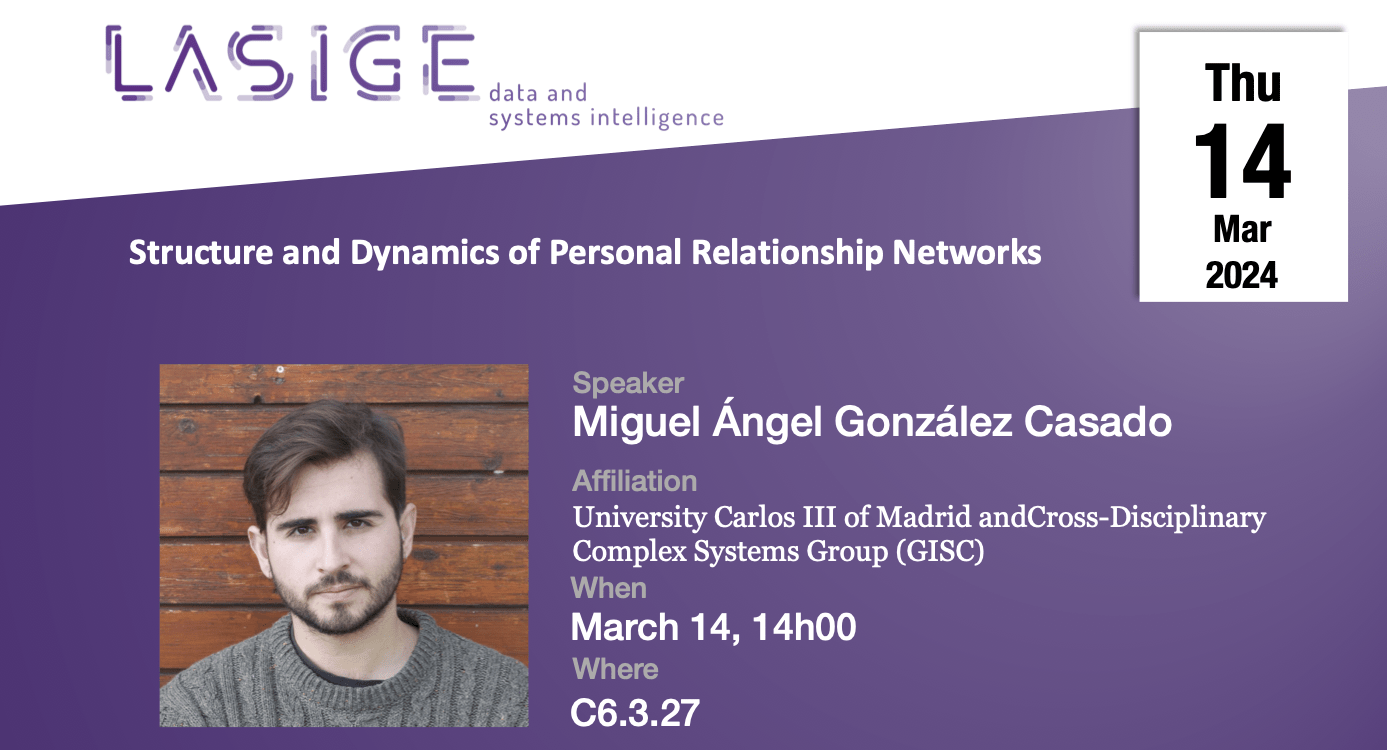Title: Structure and Dynamics of Personal Relationship Networks
Speaker: Miguel Ángel González Casado (University Carlos III of Madrid and Cross-Disciplinary Complex Systems Group (GISC))
Invited by: Andreia Sofia Teixeira (LASIGE, DI/FCUL)
When: March 14, 2024, 14:00
Where: FCUL, C6.3.27
Abstract: As a complex systems researcher, my work focuses on the study of social systems by integrating insights from various disciplines, from the social sciences to physics and mathematics. In particular, my purpose is to understand the structural properties and dynamics of personal networks, defined as networks in which links represent personal relationships (e.g. friendships and enmities of different intensities). In this talk I will revise the recent developments in this field. On the one hand, I will explore a study in which we aim to uncover the fundamental dimensions of structural variability in personal networks and develop a classification solely based on these structural properties, delving into the importance of developing such a taxonomy and its sociological implications. On the other hand, I will explain our current work focused on the development of a data-informed model based on local mechanisms that underlie the temporal evolution of the network. I will give an overview of the signed networks formalism, and its importance to unveil the role played by Structural Balance and to discover which other mechanisms drive the evolution of the network at a local level. We will see that, remarkably, our model is able to integrate these mechanisms with the cognitive limitations of individuals, and so far it can largely replicate the dynamics observed in the empirical data. Finally, I will discuss some of its limitations and possible extensions.
Bio: Miguel is a Ph.D. candidate at Carlos III University in Madrid, and member of the Cross-Disciplinary Complex Systems Group (GISC). His research focuses on the assessment of the structure and dynamics of personal relationship networks. He develops data-informed mathematical models trying to gain insight into the defining characteristics of our fundamental social structure, as well as to unveil the underlying mechanisms that contribute to its formation and temporal evolution.
